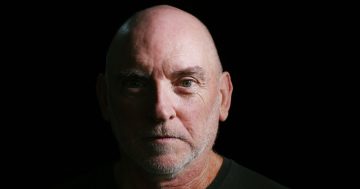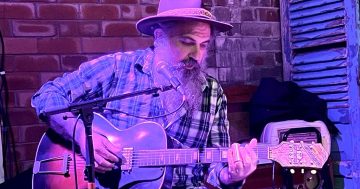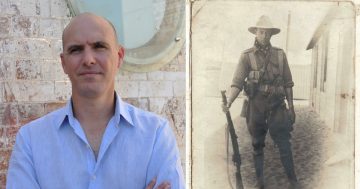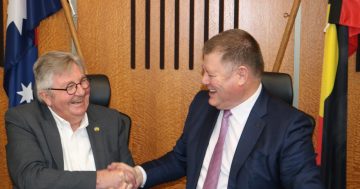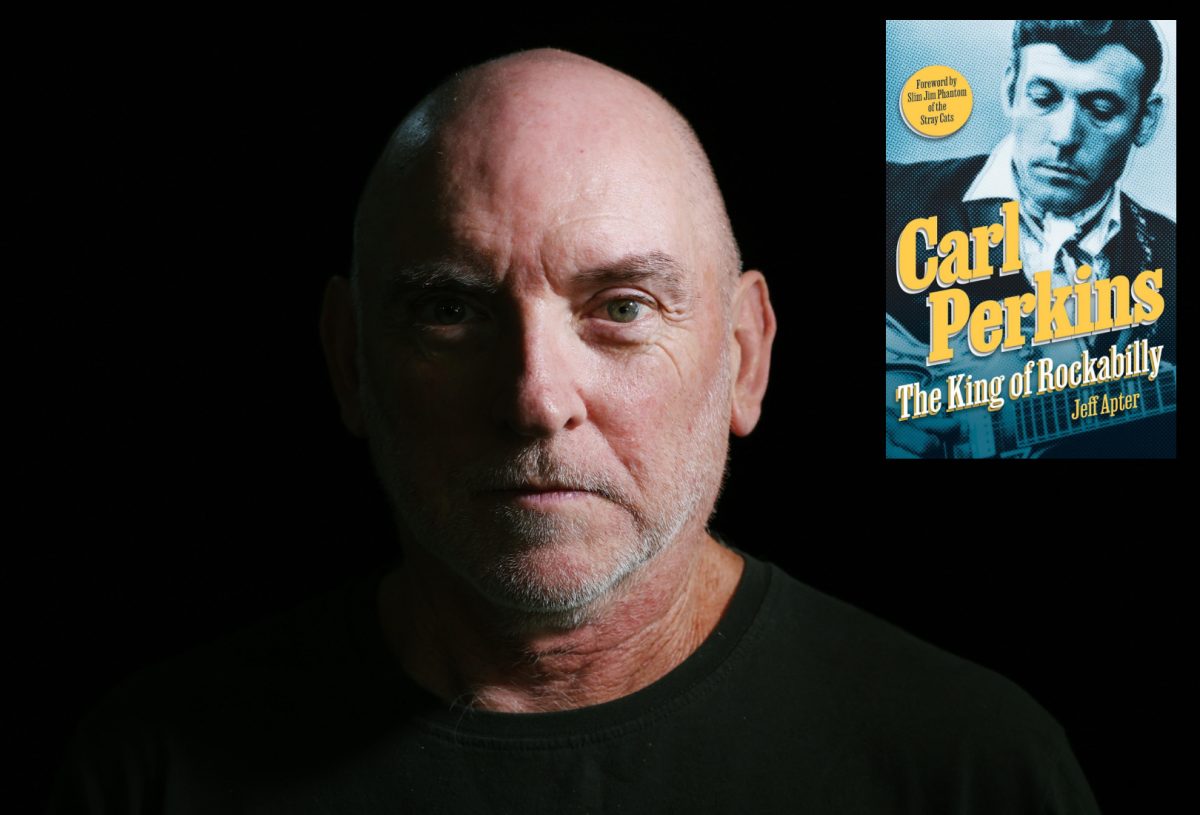
Jeff Apter’s latest book is on the life and legacy of Carl Perkins. Photo: Supplied.
Elvis may have worn the “Blue Suede Shoes”, but Carl Perkins wrote the song — and now, acclaimed music biographer Jeff Apter will share the incredible story of Perkins’ life and legacy at the Kiama Jazz and Blues Festival this weekend.
On 8 March at the Kiama Library as part of the three-day festival, the former Rolling Stone journalist will reveal the triumphs and tragedies of the original rockabilly cat from his latest definitive biography, Carl Perkins: The King of Rockabilly.
It uncovers how a humble country boy from Tennessee shaped rock and roll and earned the admiration of legends like George Harrison and Johnny Cash.
Apter, who has written books on Australian music icons from AC/DC to Keith Urban from his home in Wollongong, was surprised when he was approached by his US publisher to explore Perkins’ life – an artist he previously knew little about.
“Typically, what would happen is you would say, ‘OK, here’s some ideas I have,’” he said.
“In this instance, they came to me and said, ‘We’re looking for someone to write a book about Carl Perkins. What do you know about him?’
“I knew the basics, like that he wrote Blue Suede Shoes, that he was very close and worked for a long time with Johnny Cash, that he was part of the whole Sun Studios thing.
“As I was answering these questions, I realised I actually knew quite a bit about this guy, probably more than I realised, and thought I’d like to learn more.”
Through endless research of old interviews and articles, Apter uncovered how Perkins grew up in abject poverty in the cotton fields of Tennessee, never making it past the eighth grade and living in a wooden shack that was “miserably cold in winter and unbearably hot in summer”.
He went on to sell a million copies of Blue Suede Shoes, write hits recorded by The Beatles to Dolly Parton, and establish himself as a respected guitarist and singer-songwriter inspiring countless musicians in country, rock and pop.
“I grew up in working-class Sydney in the 60s and 70s – housing commission, parents who had a couple of jobs,” he said.
While Apter thought he had it tough as a kid, he said it was nothing compared to how Perkins grew up.
“It shocked me to be honest about how hard it was when he was growing up,” he said.
“But, as I learned, that was the really strong connection he had with a lot of these guys, like Elvis, Johnny Cash and Roy Orbison – they all came from very similar, very poor circumstances. They were country boys.”
Apter said that while Perkins found success, he never reached the same level of fame as his peers — Presley’s version of Blue Suede Shoes overshadowed his own, and during a difficult period, Cash invited him to perform alongside him to help him out.
They would work together for a decade, but Cash always made it clear that Perkins was a great musician working with him, not for him.
Apter said Perkins seemed to handle these challenges and operating in the shadow of bigger stars with remarkable grace.
“He found a way to counter all of that and just continue doing what he loved doing and took people along with him,” he said.
“He maintained a prominent career for 40 years, even with all those ebbs and flows.
“At the end, when he died, he was probably as popular as he’d ever been.”
His influence was also enormous, with Paul McCartney saying, “If there were no Carl Perkins, there would be no Beatles”.
“I knew about The Beatles and how they covered a number of Carl’s songs, and brought his music back to attention, but I didn’t know about the relationship he had with George Harrison, which was really profound,” he said.
“George actually got up and sang at Carl’s funeral, even though he was recovering from cancer himself, and it was the last time George ever performed the song in a public space.”
Apter said through speaking to Perkins’ last tour manager, he discovered how Perkins found all this attention from the likes of Harrison, Eric Clapton, Ringo Starr and Elvis Costello quite amusing.
“He said, ‘Carl just used to chuckle. These big rock stars are just fawning over me,’” he said.
“These were big names who would see Carl and just almost drop to their knees in admiration.”
However, Perkins remained an incredibly humble guy.
“He had every reason to be full of ego and to be a Jerry Lee Lewis kind of character, but he was the exact opposite,” he said.
“There’s a great quote in the book where he says, ‘I go out on the road, then I come home, I slip off the toupee, I pull out my dental plate, and I put on my baseball cap and go mow the lawn’. When he got home, he was a regular guy.”
Apter also uncovered his lesser-known philanthropic work, raising hundreds of thousands for disadvantaged children.
“He really did a lot of work under the radar,” he said.
Apter hopes the book will raise awareness of this rock and roll pioneer, quoting another who said: “This is a man whose signature song is more famous than he ever was”.
His next book is on “mad American” Lee Gordon, the first great promoter of major Australian concerts in the 1950s, who would blaze a trail for the likes of Michael Gudinski and Michael Chugg.
Book tickets to The Friends of Kiama Library author talk with Apter on 8 March from 2 – 4 pm at the Kiama Library Auditorium, or learn more about the Kiama Jazz and Blues Festival from 7 – 9 March. Books will be available for purchase.









